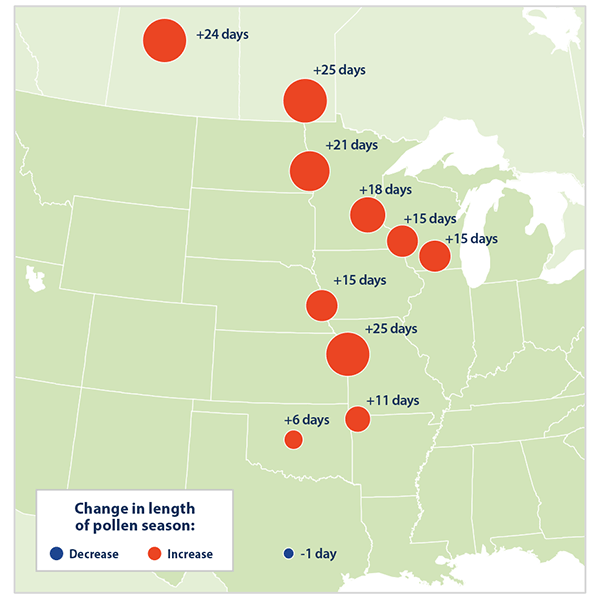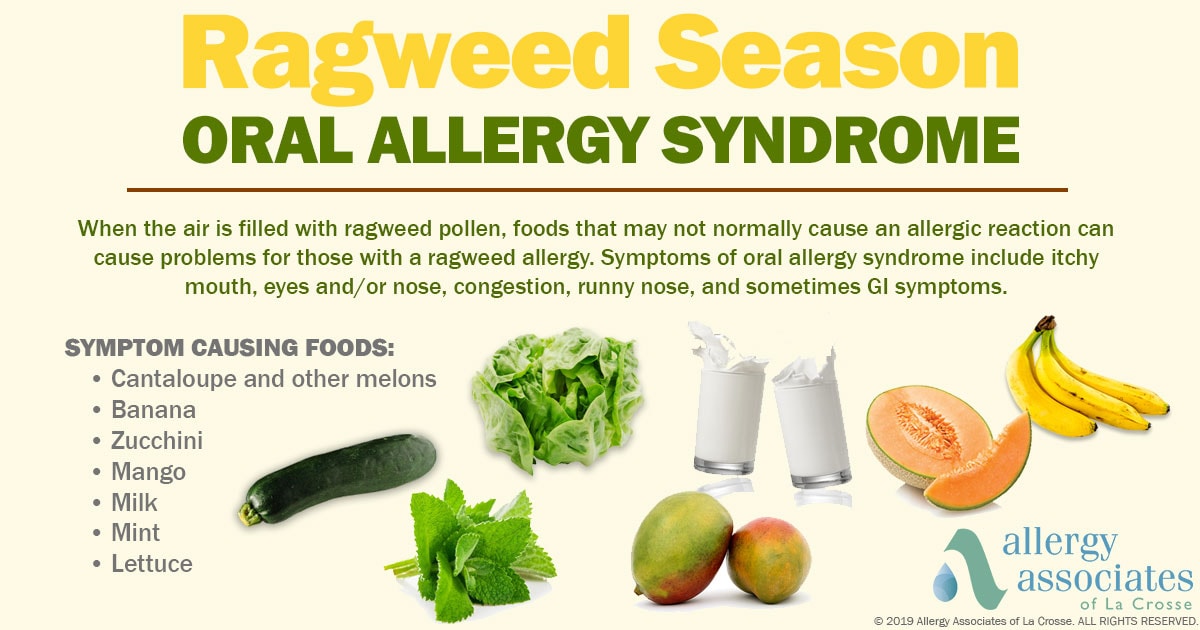Ragweed allergy impacts approximately 1 in 4 people in the U.S. Ragweed pollen season generally hits the Midwest in early to mid-August and lasts until the end of September or when temperatures significantly decrease.
What are the symptoms of ragweed allergy?
- Itchy, watery eyes
- Stuffy, runny nose and sneezing
- Wheezing and coughing (can aggravate asthma symptoms)
- Headache
- Scratchy throat
A single ragweed plant can produce 1 billion grains of pollen per season and that pollen is carried on the wind traveling hundreds of miles away.
Ragweed allergy sufferers may show signs of oral allergy syndrome, a food allergy classified by a cluster of allergic reactions in the mouth in response to eating certain fruits, vegetables, and nuts.
Why are my allergies so bad in the Fall?
Ragweed allergy is becoming worse each year, which may make you feel sick during the fall months. According to a study by Ziska et. al that compared the length of ragweed seasons from 1995 to 2015, those who suffer from pollen allergies suffer longer each year, and there seems to be no sign of it slowing down.

Ragweed allergy treatment
Many people with mild to severe ragweed allergies prefer allergy drops since it is almost impossible to avoid ragweed in the air. Over-the-counter medications are only a temporary fix and are not intended for long-term use. Allergies impact quality of life, and treating the underlying allergy improves symptoms, reduces the likelihood of new sensitivities developing, and can reduce the need for symptom-controlling medications that can cause drowsiness and other long-term health issues. Immunotherapy, whether allergy shots or allergy drops, is the only treatment that trains the immune system to stop reacting.
Once we understand your unique allergic fingerprint, we will prescribe personalized allergy drops that include ragweed. Once you’ve been on therapy, we may prescribe preseasonal treatment as a booster before the next season starts to reduce strong reactions.
How patients respond to allergy drops depends on the patient’s condition, how well they follow treatment, the allergies’ severity and how much allergen the patient is exposed to. The average treatment for environmental allergies is three to five years.

Request an Appointment
